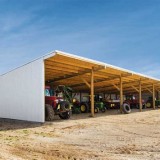Farm to Fork: Essential Concepts
The farm-to-fork concept emphasizes the traceability and transparency of the food supply chain, encompassing all stages from agricultural production to final consumption. It aims to establish a direct connection between farmers and consumers, fostering sustainability, quality, and trust in the food system.
Benefits of the Farm to Fork Approach
Embracing the farm-to-fork approach offers numerous benefits, including:
- Enhanced Food Quality and Safety: Direct sourcing from local farmers ensures freshness, reduces transportation time, and minimizes contamination risks.
- Environmental Sustainability: Local food production reduces carbon emissions from transportation and promotes sustainable farming practices.
- Economic Development: Supporting local farmers strengthens rural economies and promotes job creation.
- Increased Transparency: It provides consumers with traceability information, allowing them to make informed choices about their food.
Key Elements of Farm to Fork
The farm-to-fork concept encompasses several key elements:
- Local and Regional Food Systems: Prioritizing the production and distribution of food within local communities and regions.
- Sustainable Agricultural Practices: Employing environmentally friendly farming methods that protect natural resources and promote soil health.
- Traceability and Transparency: Establishing systems to track the movement of food products throughout the supply chain, ensuring accountability.
- Consumer Education: Raising awareness about the benefits of farm-to-fork and empowering consumers to make informed decisions.
Challenges and Opportunities
While the farm-to-fork approach presents significant benefits, it also faces challenges:
- Scale and Availability: Meeting demand for local food products on a large scale can be challenging.
- Seasonality: Local food production may be affected by seasonal variations, limiting availability of certain items year-round.
Despite these challenges, there are opportunities to overcome them:
- Collaboration: Partnerships between farmers, distributors, and retailers can improve efficiency and expand availability of local products.
- Infrastructure: Investments in transportation and storage infrastructure can facilitate the distribution of local food.
- Education: Raising awareness about the importance of local food and supporting programs that connect consumers with farmers.
Conclusion
The farm-to-fork concept plays a critical role in transforming the food system towards sustainability, transparency, and quality. By fostering a direct connection between farmers and consumers, it empowers consumers to make informed choices and supports local economies. While challenges exist, collaboration, innovation, and consumer engagement can overcome these obstacles, creating a more resilient and equitable food system for the future.

Farm To Fork Activities Poster School Age November Preschool Teaching

Active Homework Grid Farm To Fork Themed Home Learning Challenges

Farm To Fork First Level Cfe Interdisciplinary Topic Web

Farm To Fork Upper Elementary Reading Activities

Farming Beef Cattle Poster Apple For The Teacher Ltd

34 Farm To Fork Ideas Lessons Unit

40 Farm To Fork Ideas Food Local Restaurant

Farm To Fork Strategy

Understand Where Your Food Comes From

100 Farm To Fork Ideas Agriculture Education Ag








